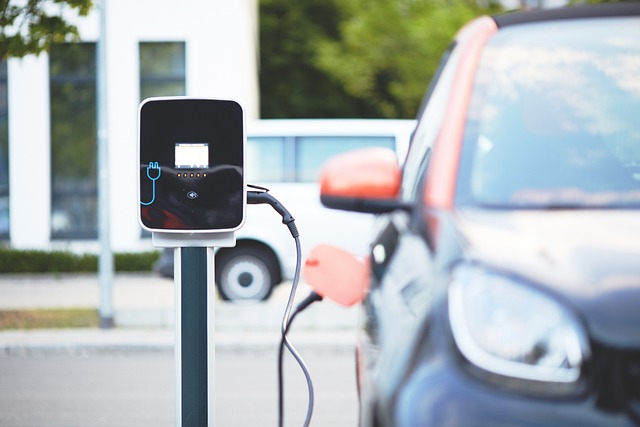India’s Electric Cars: A New Era of Clean and Smart Mobility
India's automotive landscape is undergoing a revolutionary transformation with electric vehicles (EVs) emerging as a promising solution to environmental challenges and transportation needs. As urban centers grapple with pollution and energy sustainability, electric cars are rapidly becoming more than just an alternative – they're becoming a necessity for modern Indian mobility.

Why Are Electric Cars Gaining Momentum in India?
Several compelling factors contribute to the rising popularity of electric vehicles across the country. Government initiatives like the Faster Adoption and Manufacturing of Hybrid and Electric Vehicles (FAME) scheme provide substantial subsidies and tax benefits to electric car buyers. State governments in Delhi, Maharashtra, and Gujarat offer additional incentives, including registration fee waivers and reduced road taxes.
Environmental concerns play a crucial role in this momentum. With major cities like Delhi and Mumbai facing severe air pollution, electric cars offer a practical solution to reduce vehicular emissions. The absence of tailpipe emissions makes electric vehicles particularly attractive to environmentally conscious consumers seeking to minimize their carbon footprint.
Rising fuel costs also drive adoption rates. As petrol and diesel prices continue fluctuating, electric cars provide predictable operating costs with significantly lower per-kilometer expenses compared to conventional vehicles.
Design and Innovation: Engineered for Indian Roads
Electric car manufacturers have recognized India’s diverse driving conditions and infrastructure challenges, leading to innovative design solutions. Modern electric vehicles feature enhanced ground clearance to navigate uneven roads and potholes common in urban and rural areas.
Battery technology has evolved to withstand India’s extreme temperatures, with thermal management systems ensuring optimal performance during scorching summers and monsoon seasons. Many models incorporate advanced battery protection systems that prevent damage from voltage fluctuations, addressing concerns about India’s inconsistent power supply.
Manufacturers are also focusing on localization, establishing domestic production facilities to reduce costs and improve service accessibility. This approach has led to the development of India-specific features like smartphone integration for vehicle monitoring, multilingual display systems, and compact designs suitable for congested city traffic.
Leading Brands Shaping the Indian EV Market
The Indian electric vehicle market features a diverse mix of domestic and international manufacturers, each contributing unique innovations and solutions. Tata Motors has established a strong presence with models like the Nexon EV and Tigor EV, focusing on affordability and practical range for Indian consumers.
Mahindra Electric continues expanding its portfolio with vehicles designed specifically for Indian road conditions and consumer preferences. The company emphasizes robust build quality and after-sales service networks across smaller cities and towns.
International brands like MG Motor and Hyundai have introduced premium electric vehicles with advanced features and longer ranges, targeting urban professionals and technology enthusiasts. These manufacturers often pioneer new technologies that eventually become standard across the market.
Newer entrants like Ola Electric are focusing on innovative direct-to-consumer sales models and comprehensive charging solutions, challenging traditional automotive retail approaches.
| Vehicle Model | Manufacturer | Estimated Price Range | Key Features |
|---|---|---|---|
| Nexon EV | Tata Motors | ₹14-17 lakhs | 312 km range, fast charging |
| eVerito | Mahindra | ₹10-12 lakhs | Spacious cabin, reliable build |
| ZS EV | MG Motor | ₹21-25 lakhs | Premium features, 419 km range |
| Kona Electric | Hyundai | ₹23-24 lakhs | 452 km range, advanced safety |
Prices, rates, or cost estimates mentioned in this article are based on the latest available information but may change over time. Independent research is advised before making financial decisions.
The Future of Electric Cars in India
India’s electric vehicle future appears increasingly promising, with projections suggesting significant market expansion over the next decade. The government’s ambitious target of 30% electric vehicle adoption by 2030 is driving substantial infrastructure investments and policy support.
Charging infrastructure development is accelerating, with both government agencies and private companies establishing networks across highways and urban centers. Fast-charging technology improvements are reducing charging times, making electric cars more practical for long-distance travel.
Battery manufacturing is becoming increasingly localized, with several companies establishing production facilities in India. This trend promises to reduce vehicle costs and create employment opportunities while supporting the government’s Make in India initiative.
Autonomous driving technologies and connected car features are expected to integrate seamlessly with electric powertrains, offering Indian consumers advanced mobility solutions that were previously unavailable in the domestic market.
Finding Your Electric Car in India
Selecting an appropriate electric vehicle requires careful consideration of individual needs and circumstances. Potential buyers should evaluate their daily driving patterns, typical journey distances, and available charging options at home or workplace.
Research local dealership networks and service centers, as electric vehicles require specialized maintenance expertise. Many manufacturers offer comprehensive warranty packages covering batteries and electric components, providing additional peace of mind for first-time electric car buyers.
Test driving multiple models helps understand different driving characteristics and feature sets. Electric vehicles offer instant torque delivery and quiet operation, creating a distinctly different driving experience compared to conventional cars.
Consider available charging infrastructure in your area and investigate options for home charging installation. Many electricity boards offer special tariffs for electric vehicle charging, potentially reducing operating costs further.
Electric cars represent a significant step toward sustainable transportation in India, combining environmental benefits with technological innovation and economic advantages. As infrastructure continues developing and technology costs decrease, electric vehicles are positioned to become mainstream transportation solutions for Indian consumers seeking cleaner, smarter mobility options.




